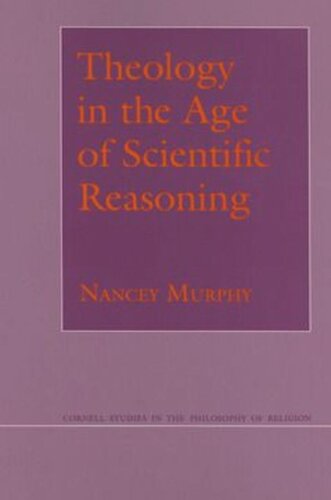

Most ebook files are in PDF format, so you can easily read them using various software such as Foxit Reader or directly on the Google Chrome browser.
Some ebook files are released by publishers in other formats such as .awz, .mobi, .epub, .fb2, etc. You may need to install specific software to read these formats on mobile/PC, such as Calibre.
Please read the tutorial at this link: https://ebookbell.com/faq
We offer FREE conversion to the popular formats you request; however, this may take some time. Therefore, right after payment, please email us, and we will try to provide the service as quickly as possible.
For some exceptional file formats or broken links (if any), please refrain from opening any disputes. Instead, email us first, and we will try to assist within a maximum of 6 hours.
EbookBell Team

4.8
24 reviewsIn this timely and provocative book, Nancey Murphy sets out to dispel skepticism regarding Christian belief. She argues for the rationality of Christian belief by showing that theological reasoning is similar to scientific reasoning as described by contemporary philosophy of science.
Murphy draws on new historicist accounts of science, particularly that of lmre Lakatos. According to Lakatos, scientists work within a "research program" consisting of a fixed core theory and a series of changing auxiliary hypotheses that allow for prediction and
explanation of novel facts: Murphy argues that strikingly similar patterns of reasoning can be used to justify theological assertions. She provides an original characterization of theological data and explores the consequences for theology and philosophy of religion of adopting such an approach.